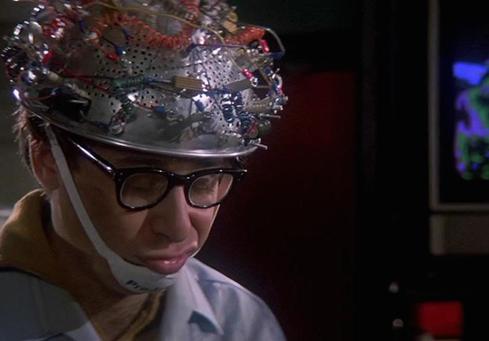Intel, Michael J. Fox Foundation Take On Parkinson's Disease
Intel partners with the Michael J. Fox Foundation to explore how wearable devices could help advance Parkinson's disease research.


Wearable Tech: 5 Healthcare Wins
Wearable Tech: 5 Healthcare Wins (Click image for larger view and slideshow.)
Intel and the Michael J. Fox Foundation for Parkinson's Research (MJFF) have partnered to help researchers and healthcare professionals improve patient care and explore new treatments for Parkinson's Disease through big data analytics.
The medical community's approach to Parkinson's disease has changed little since Dr. James Parkinson first described the condition in 1817, Todd Sherer, CEO of MJFF, said in a webcast news conference. "We are limited now by our ability to track the disease in an objective way and we rely on subjective measurements," he noted. "Assessment tools have not advanced dramatically since [1817]."
Intel and MJFF aim to change that, said Diane Bryant, senior VP and general manager of Intel's Data Center Group, through a jointly developed open solution that includes wearable devices, smartphones, and Cloudera CDH Hadoop-based big data analytic.
[For more on the potential of wearable devices in healthcare, see Wearable Tech Can Extend Clinical Analytics.]
Patients who suffer from the neurological disease, which affects about 5 million people worldwide, face symptoms such as tremors, sleep disruption, unsteady gait, and rigidity. In its first test of the new solution, 25 individuals -- 16 patients and nine control volunteers -- wore smartwatches to collect data on symptoms over four days and two clinic visits. Data was shared with search partners at Mount Sinai Hospital and Tel Aviv Medical Center in Israel.
All information is anonymized and secured in transmission and analysis, Bryant said. Going forward, patients' smartphones could transmit this information to the Hadoop solution for analysis. All information is anonymized and secured in transmission and analysis, Bryant added, and because it's an open system, other pilots or full-scale rollouts could use a variety of wearable devices from multiple vendors.
Currently, many physicians ask Parkinson's patients to keep daily logs with pen and paper, a time-consuming and error-prone task that individuals often fail to complete. Data scientists now are correlating digital data and manually collected patient information to develop algorithms to measure symptoms, according to Intel.
"I know that many doctors tell their patients to keep a log to track their Parkinson's," said Bret Parker, 46, who lives with Parkinson's. "I am not a compliant patient on that front. I pay attention to my Parkinson's, but it's not everything I am all the time. The wearables did that monitoring for me in a way I didn't even notice, and the study allowed me to take an active role in the process for developing a cure."
Wearable devices can capture more than 300 observations per minute, per patient. Intel's big data platform, housed in an Amazon Web Services cloud, uses an analytics application Intel developed to process and find changes in real-time. This allows researchers to objectively measure the disease's progress and eventually determine how various treatments help patients.
Soon, Bryant noted, the platform also could incorporate patient genome and clinical trial data, along with machine learning and graph analytics, to further support researchers' work.
This work could also help patients suffering from other conditions, Sherer pointed out, because Parkinson's disease includes symptoms seen across different illnesses or patient groups. In addition, the platform could be replicated to address the big data and analytics needs of researchers in other healthcare fields or even beyond the medical market, Bryant added.
Intel's involvement in Parkinson's research developed when Andy Grove, the company's third employee and a foundation board member who suffers from the condition, brought the idea to Bryant's team. Intel data scientists met with MJFF members, researchers, and patients to better understand the challenges faced by those with Parkinson's disease.
Relatively few Parkinson's patients participate in clinical trials, which are expensive, Bryant said, and researchers limit their sharing. To spur more research initiatives, MJFF has previously shared de-identified patient data and bio-samples with qualified researchers. Through its partnership with Intel, Sherer said, the foundation hopes to attract the attention of many more researchers through crowdsharing.
In its ninth year, Interop New York (Sept. 29 to Oct. 3) is the premier event for the Northeast IT market. Strongly represented vertical industries include financial services, government, and education. Join more than 5,000 attendees to learn about IT leadership, cloud, collaboration, infrastructure, mobility, risk management and security, and SDN, as well as explore 125 exhibitors' offerings. Register with Discount Code MPIWK to save $200 off Total Access & Conference Passes.
Read more about:
2014About the Author(s)
You May Also Like
How to Amplify DevOps with DevSecOps
May 22, 2024Generative AI: Use Cases and Risks in 2024
May 29, 2024Smart Service Management
June 4, 2024







